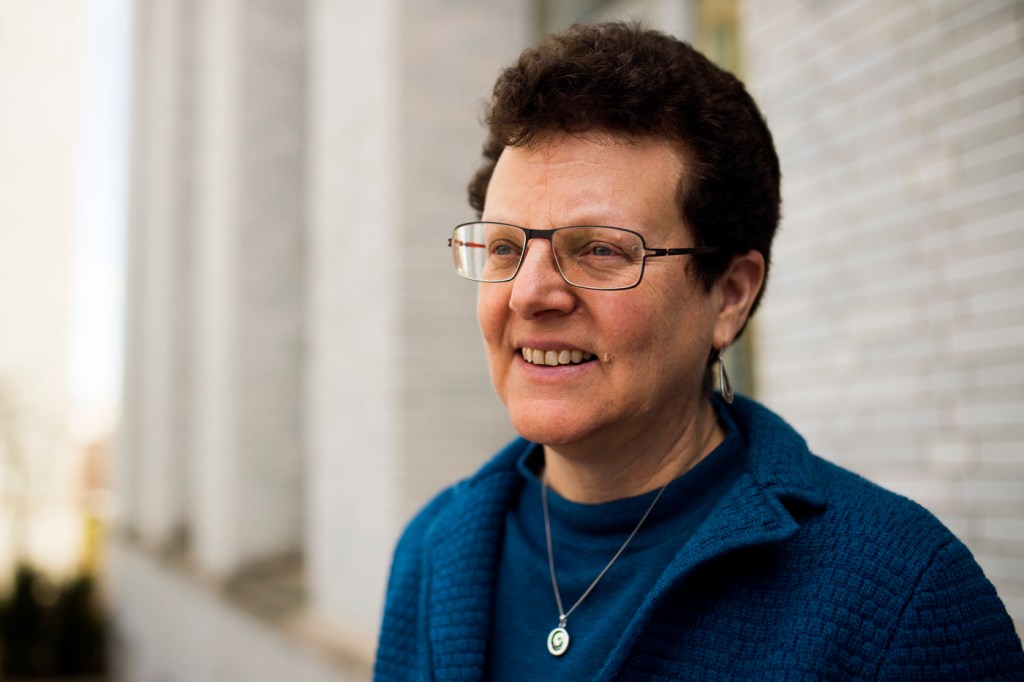Faster connections, on the fly

During her morning and evening commute, Miriam Leeser enjoys passing the time on the train playing electronic puzzle games such as Two Dots. At Northeastern, she deploys that same puzzle-solving mindset in her research lab.
Leeser’s research involves reconfiguring hardware to help our electronic devices go faster. Specifically, she focuses on field programmable gate arrays—integrated electronic circuits that can essentially be reprogrammed on the fly.
This is all about a puzzle, making these things go faster and fitting the pieces together.
Miriam Leeser, Professor
Why is this useful? Think of it this way. Today, internet of things devices all connect wirelessly to each other, but it’s not entirely a seamless process, explained Leeser, professor of electrical and computer engineering. These devices use various protocols—Bluetooth, WiFi, LTE, to name a few. “I’ve seen devices that have 10 chips, one for each protocol, then a new protocol comes out and it’s useless,” she explained.
The long-term goal of her research is designing smarter circuits that know exactly which protocol to use that will deliver the fastest and most efficient connection before you do—and switch between them as needed. Leeser explained that the normal way to do this would be to use software, but that would be too slow. So you want to use hardware, but somehow make is as flexible as software. This is what reconfigurable devices do.
Leeser leads Northeastern’s Reconfigurable and GPU Computing Laboratory, where she and her students research how to use hardware accelerators such as field programmable gate arrays and graphics processing units for a variety of applications. Essentially, the purpose of their work is to speed up wireless networking, the internet of things, medical imaging, and security and privacy applications. Their current projects are funded by Google, Mathworks, the National Science Foundation, and the Defense Advanced Research Projects Agency.
Now, Leeser has been selected for a prestigious 2018-19 Fulbright U.S. Scholar grant, through which she will spend the majority of the upcoming academic year abroad in Ireland at Maynooth University and the CONNECT Centre at Trinity College. She plans to advance her research by collaborating closely with radio frequency and networking experts.
“When you’re supporting these protocols, you really want one antenna that can support multiple bandwidths and frequency. That’s where I see my work intersecting with their expertise,” she explained. “This is all about a puzzle, making these things go faster and fitting the pieces together.”





